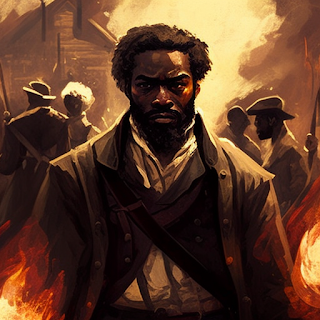Nat Turner was born into slavery in Southampton County, Virginia, in 1800. As a child, he was said to have been deeply religious and had a number of religious visions. He believed that these visions were a sign from God and that he had been chosen to lead a rebellion against the white slave masters.
In 1831, a solar eclipse occurred and Turner believed that this was the sign that he had been waiting for to begin his rebellion. On August 21, 1831, he and a group of followers, estimated to be between 50 and 80 enslaved people, killed several white people in the area, including women and children. They moved from plantation to plantation, freeing other enslaved people and killing white people along the way.
The rebellion was quickly put down by local militia and Turner and his followers were captured. He was tried and convicted of leading the rebellion and was executed on November 11, 1831. Several of his followers were also tried and executed.
In the aftermath of the rebellion, many other enslaved people were punished and several states passed laws to further restrict the rights of enslaved people. The rebellion also sparked a renewed fear of slave uprisings in the South and led to increased repression of enslaved people. Many white people in the South saw the rebellion as a reminder of the potential danger of enslaved people and this fear would only increase in the years leading up to the Civil War.
Nat Turner's rebellion had a profound impact on the United States. It was one of the most significant events leading up to the Civil War, and it inspired other enslaved people to resist their oppressors. Some historians argue that it was a catalyst for the abolitionist movement, which would gain momentum in the decades leading up to the Civil War.
Nat Turner's rebellion also had an impact on the literature and art of the time, many novels, and plays were written about the rebellion and the figure of Nat Turner, who was seen as a symbol of resistance and rebellion against slavery.







0 Comments